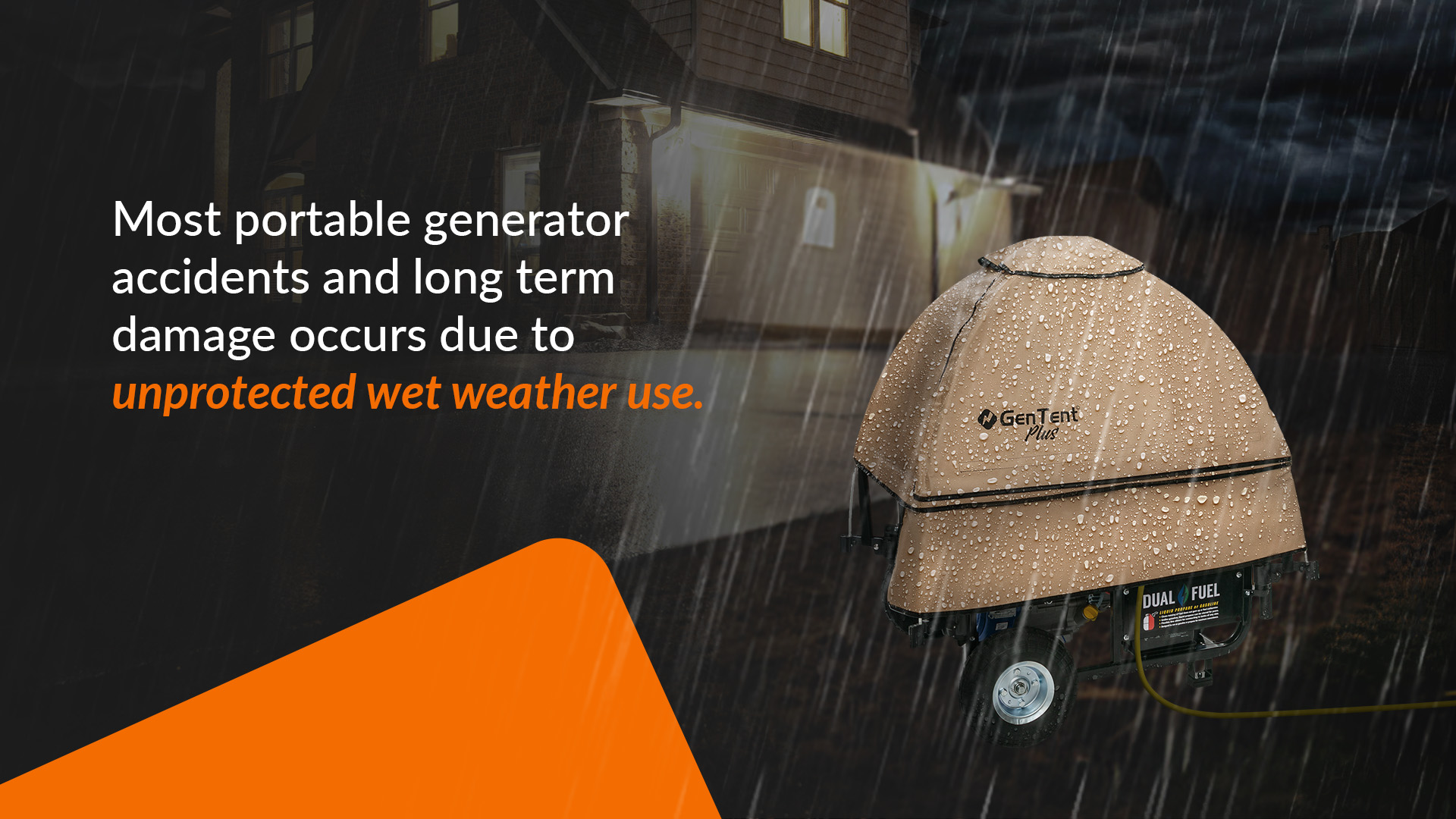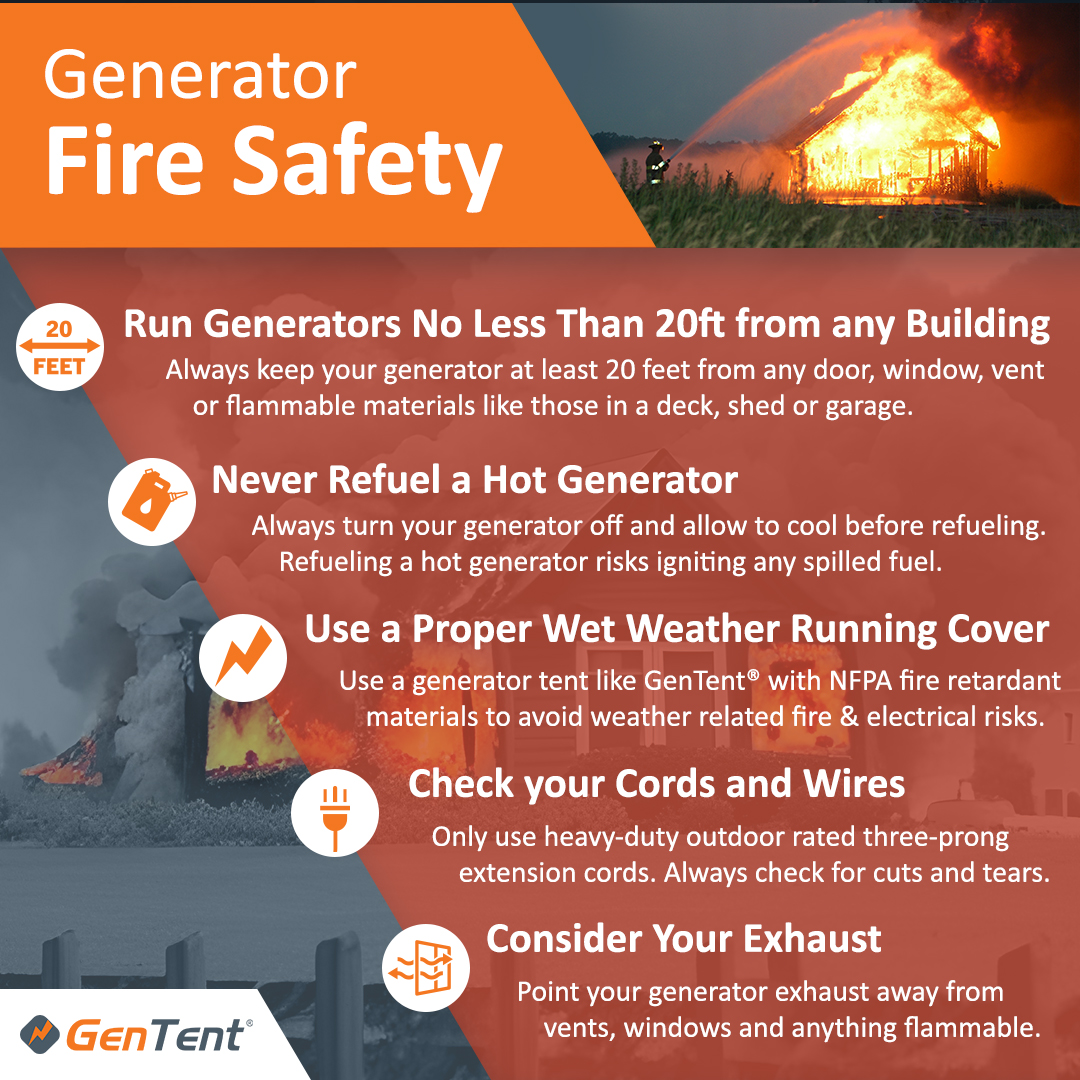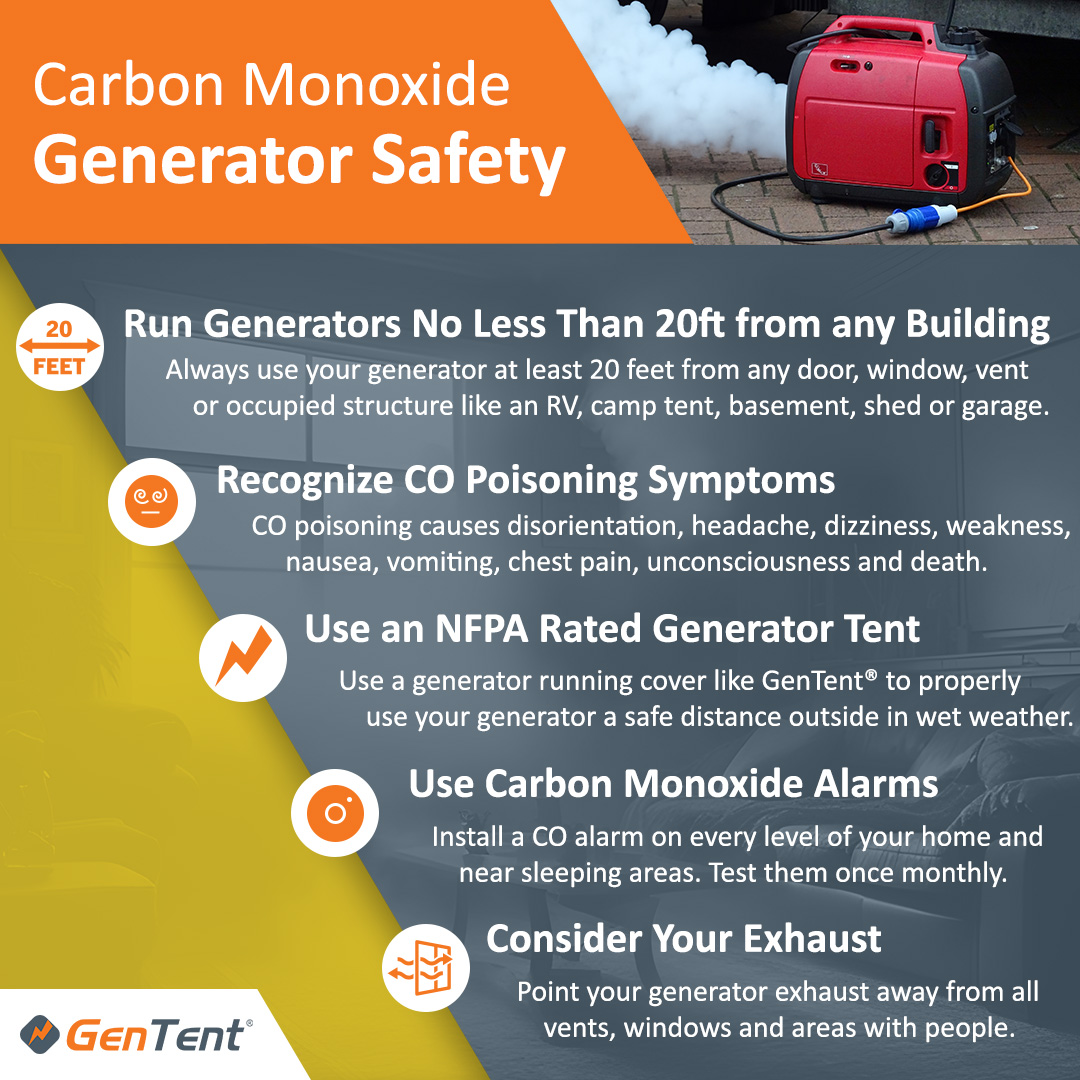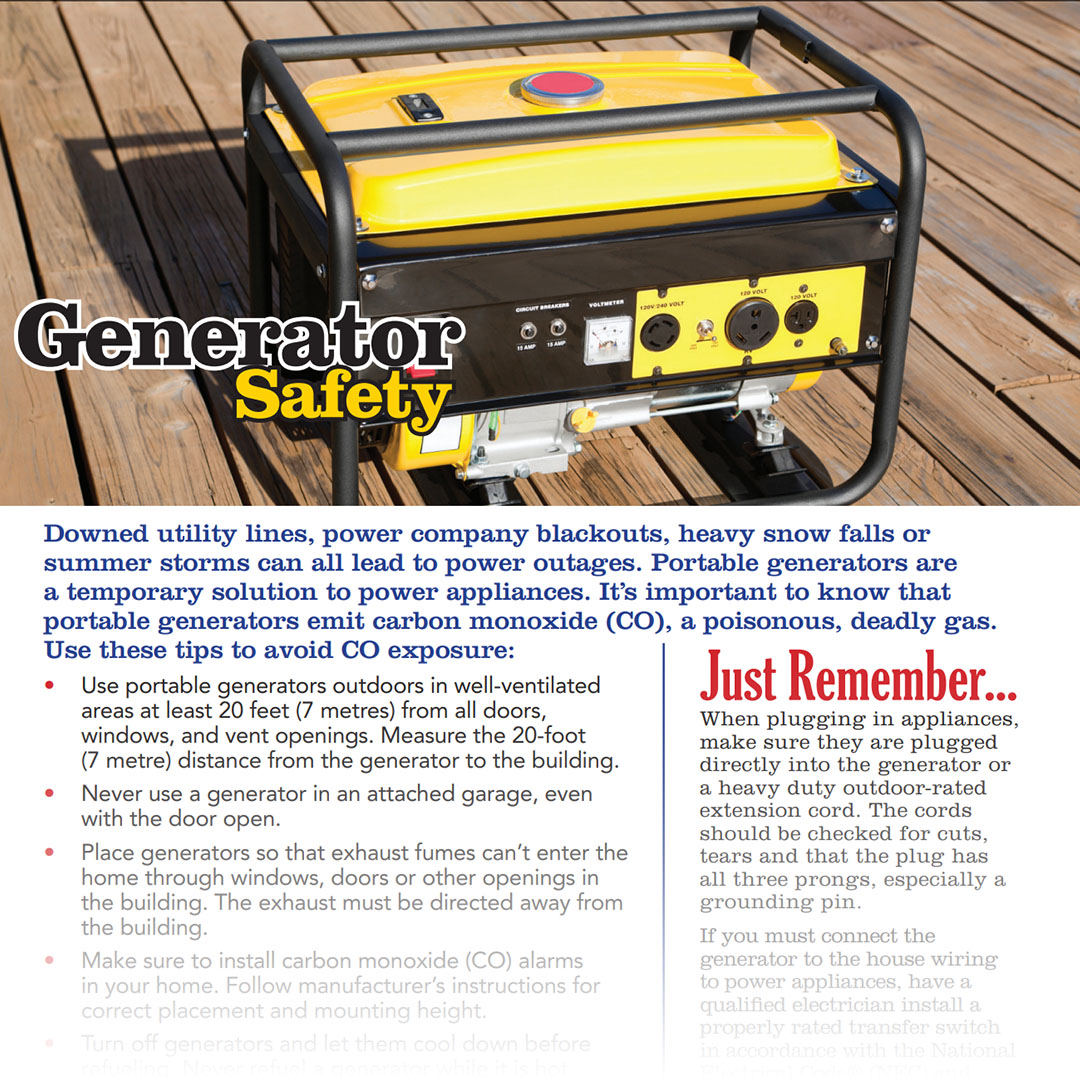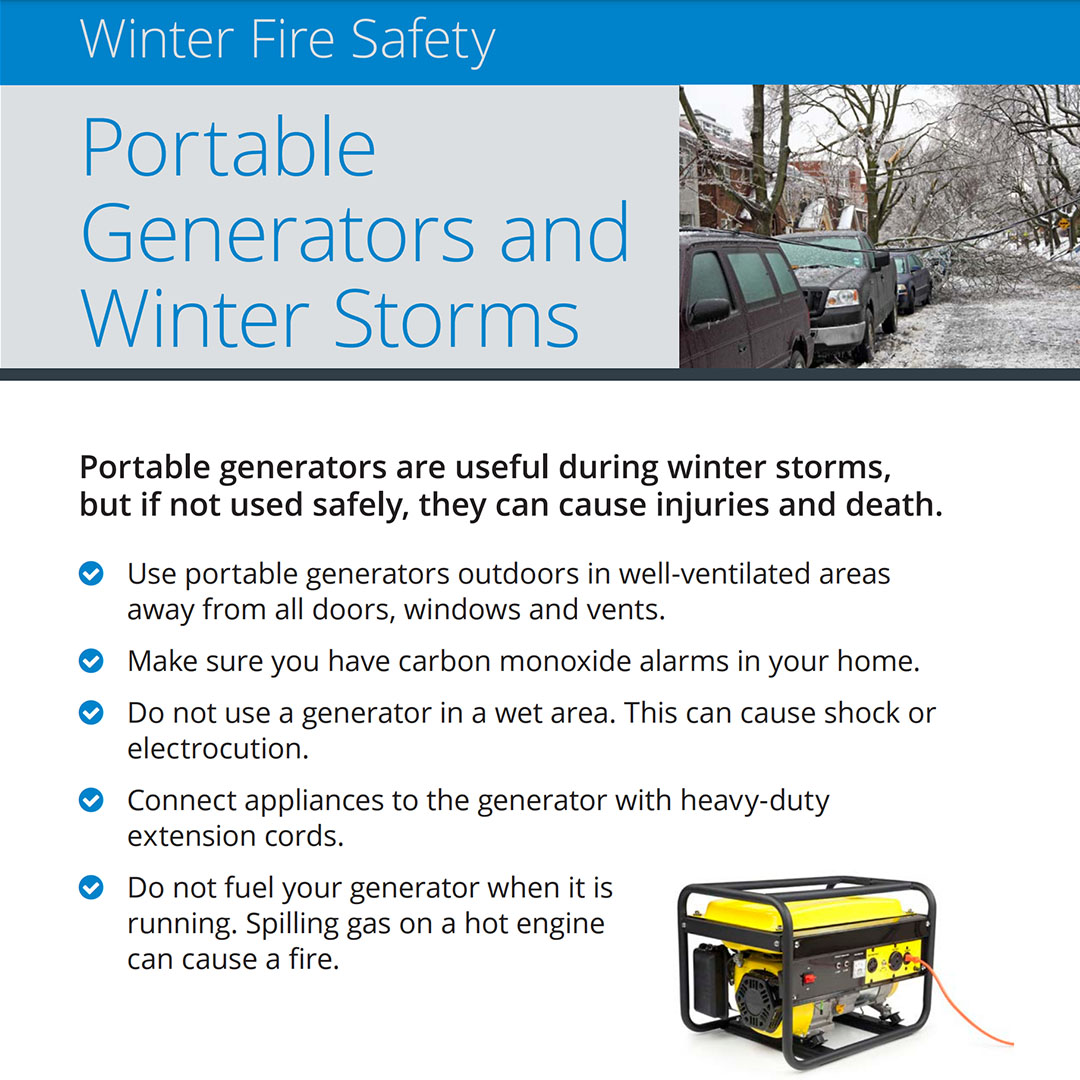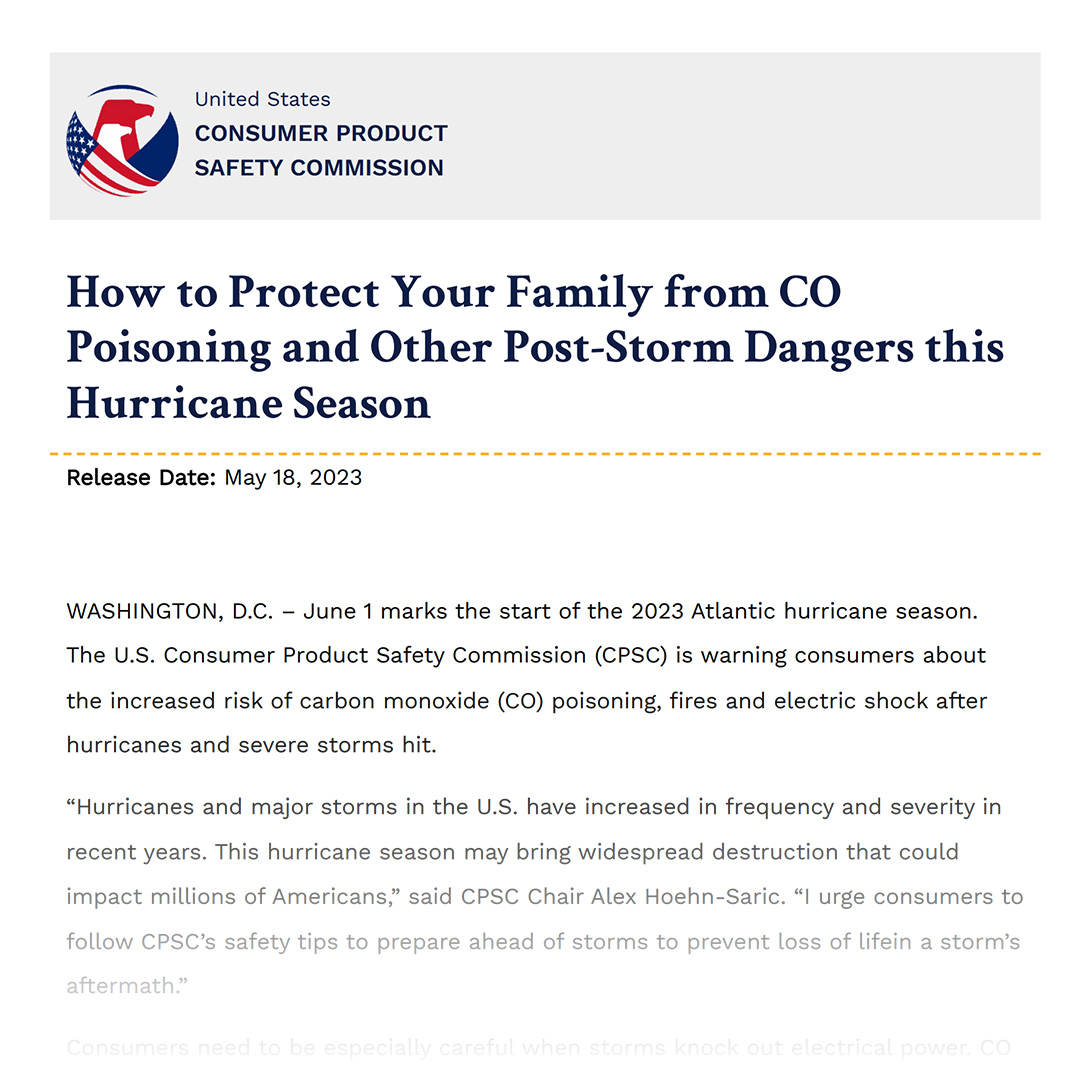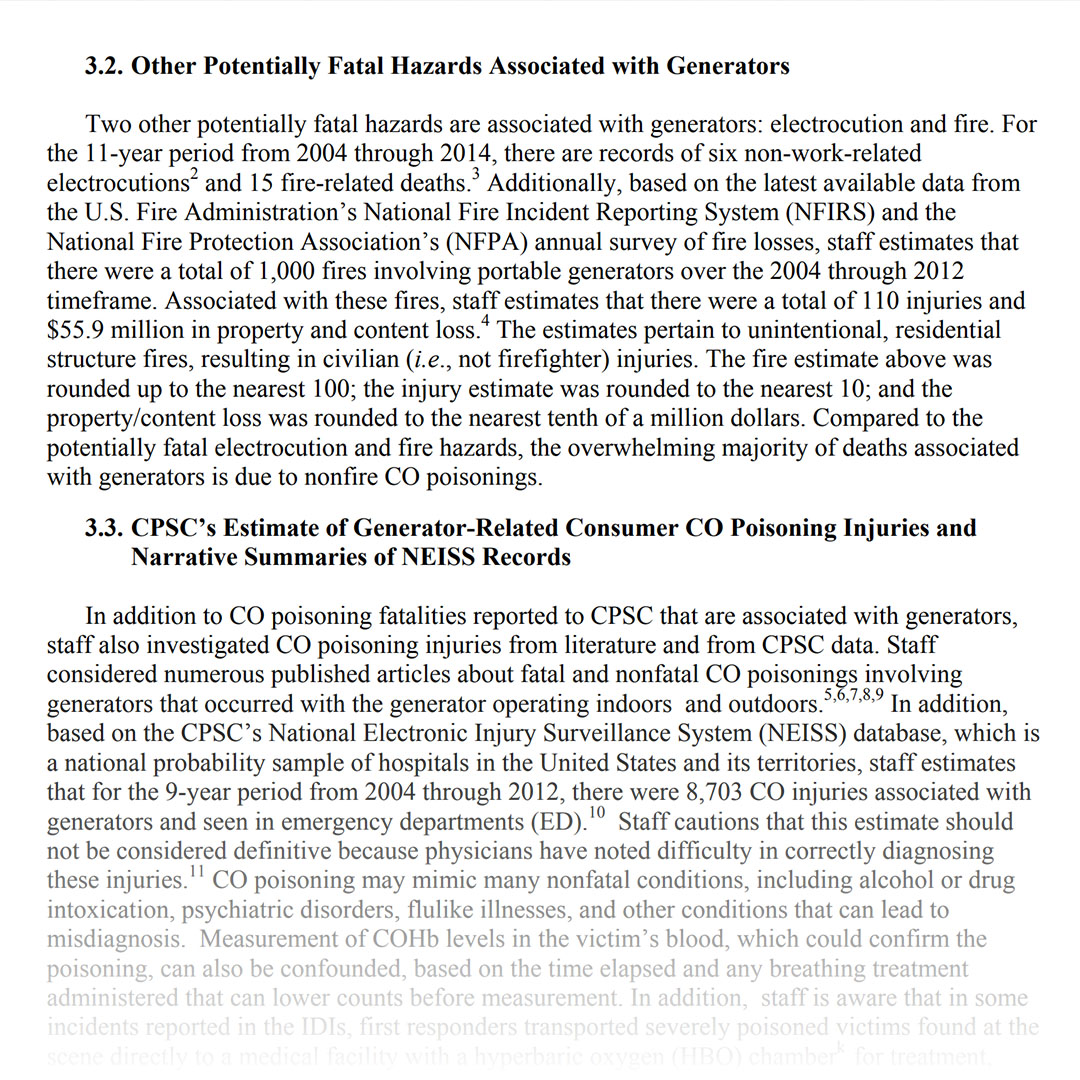Portable Generator Fire Safety
Portable generators can serve as a lifeline during power outages, an important tool on job sites and can help power the party at outdoor events and campsites. But without proper use, portable generators can pose serious risks for fires and other hazards.
Data from the U.S. Fire Administration's National Fire Incident Reporting System (NFIRS) and the National Fire Protection Association's (NFPA) annual fire loss survey reveal an average of approximately 1000 fires involving portable generators between 2004 and 2012.
In this comprehensive guide, we'll explore how some of the potential and unknown risks, as well as share essential fire safety tips and official recommendations from respected safety organizations to safeguard yourself and your property when operating a portable generator.
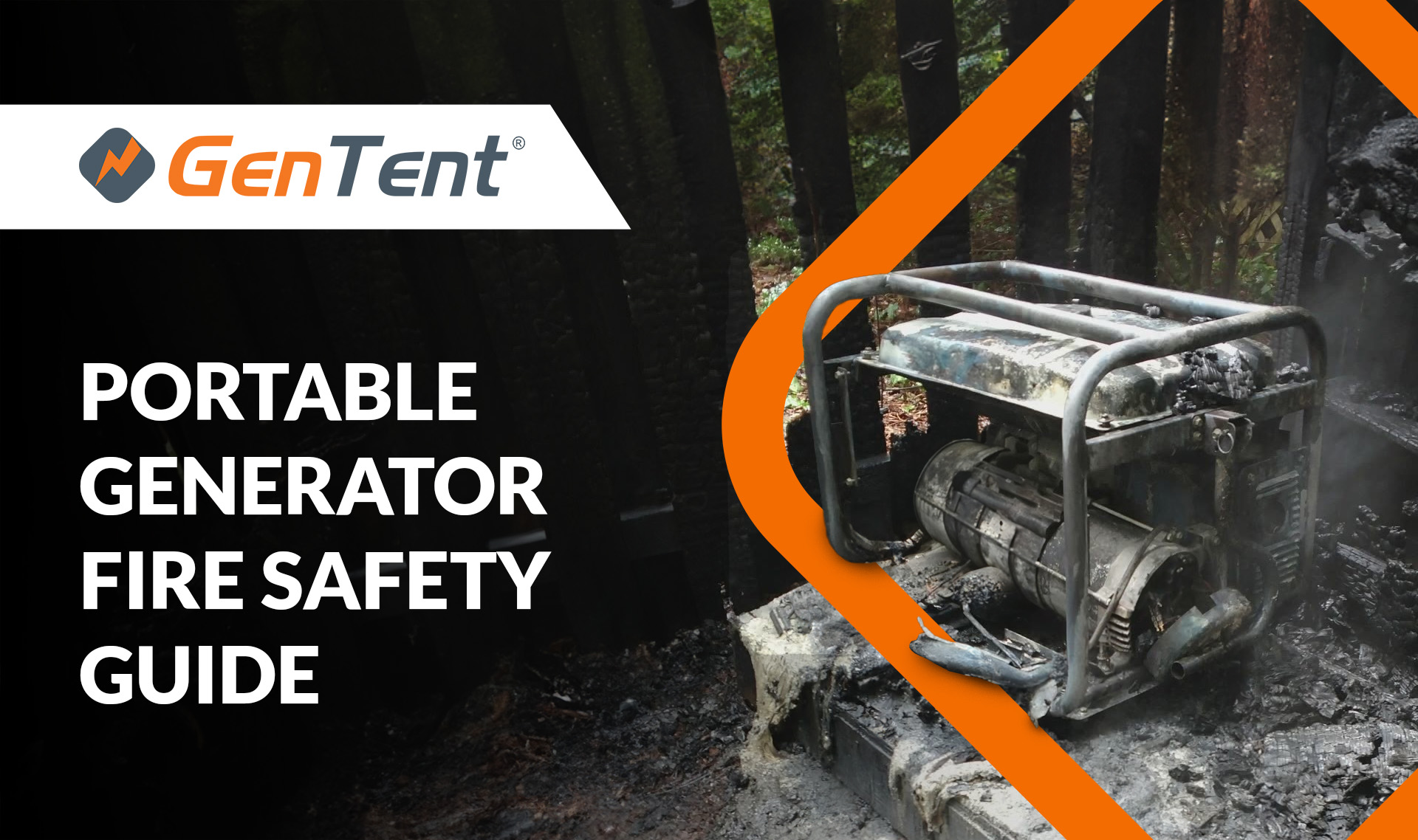
Portable Generator Fire Hazards
Here are some of the common fire risk factors to be aware of when using your portable generator, and ways to prevent them from sparking a fire:
Overheating
- Generators produce a large amount of heat during operation. Overheating can occur when there is inadequate ventilation or when the generator is running at full capacity for extended periods.
- Don't overload your generator with high-voltage appliances. Check your generator's capacity against the combined voltages of the appliances you plan to use, especially for appliances with heating and cooling elements.
- Ensure there's nothing blocking your generator's exhaust before starting.
- Portable generators rely on air intake and air cooling, so it’s important to ensure that your intake and vents have natural air flow just like your exhaust.
Fuel Leaks
- Even a small leak in the generator's fuel system can lead to a dangerous situation. Leaks can be caused by bad fuel, damaged fuel lines, or corrosion from overexposure to moisture.
- Regularly inspect your fuel lines and fuel tank for signs of damage or rust or improper ventilation.
- If left unmaintained, leaks may commonly occur with fuel injectors, carburetors, or bad gas caps; regular maintenance and inspection should be conducted on these additional areas to ensure the generator is leak free.
- Ethanol fuel can increase the likelihood of fuel system issues; using non-ethanol fuel is beneficial since it reduces fuel storage issues.
- Visit pure-gas.org to find a station that offers this kind of fuel.
- Add Fuel Stabilizer to limit fuel system and fuel storage issues when you are ready to store your unit.
- Use an NFPA-rated running cover during wet weather to prevent water and moisture entering your generator's fuel system.
Electrical Fires
- Wet electrical panels, faulty wiring, damaged cords, or overloaded circuits can spark electrical fires in generators.
- Check your cords for signs of damage before use.
- Only use heavy-duty outdoor extension cords that are rated for the size and usage of your generator.
- Keep your electrical panel dry during wet weather by using an NFPA-rated generator tent like GenTent.
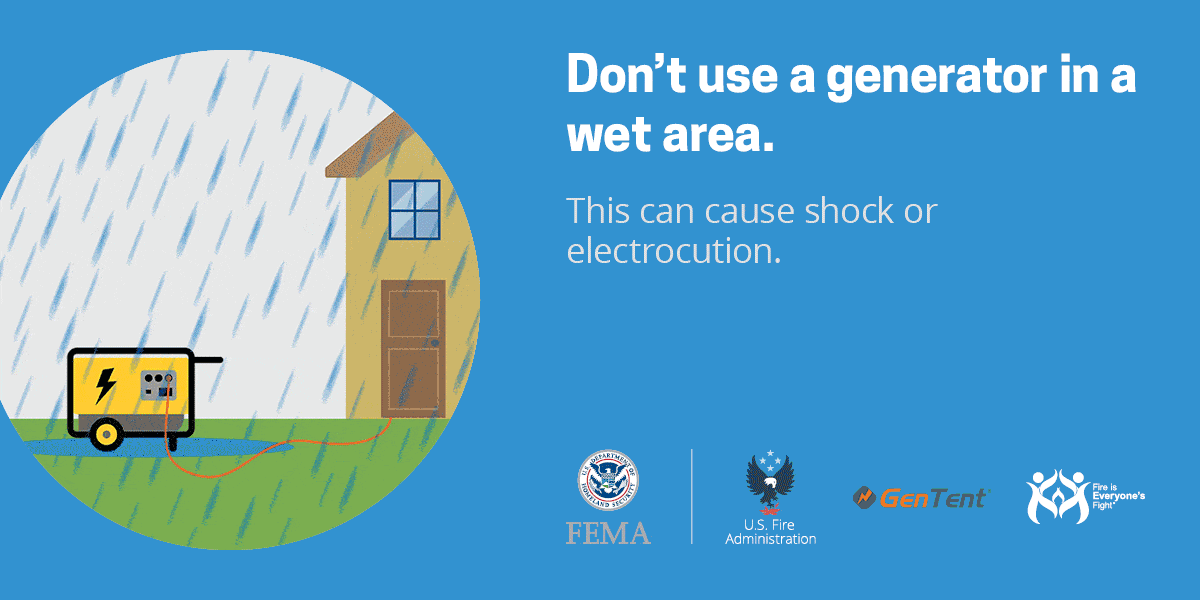
Refueling a Hot Generator
- Accidentally spilling fuel onto the generator's hot or electrical components can spark a fire as outlined in the U.S. Fire Administration’s Portable Generator Fire Safety Tips.
- Generators should be turned off and allowed to cool for 15 to 20 minutes before refueling.
- Always use a funnel to prevent fuel spills.
Nearby Flammable Materials
- Hot generator exhaust can ignite nearby flammable materials.
- Never run your generator within 20 feet of structures or flammable materials like those in decks, sheds, and garages; and place in a well-ventilated area outdoors as outlined in the NFPA Generator Safety sheet.
- Clear the area around your generator from any flammable items or debris before starting.
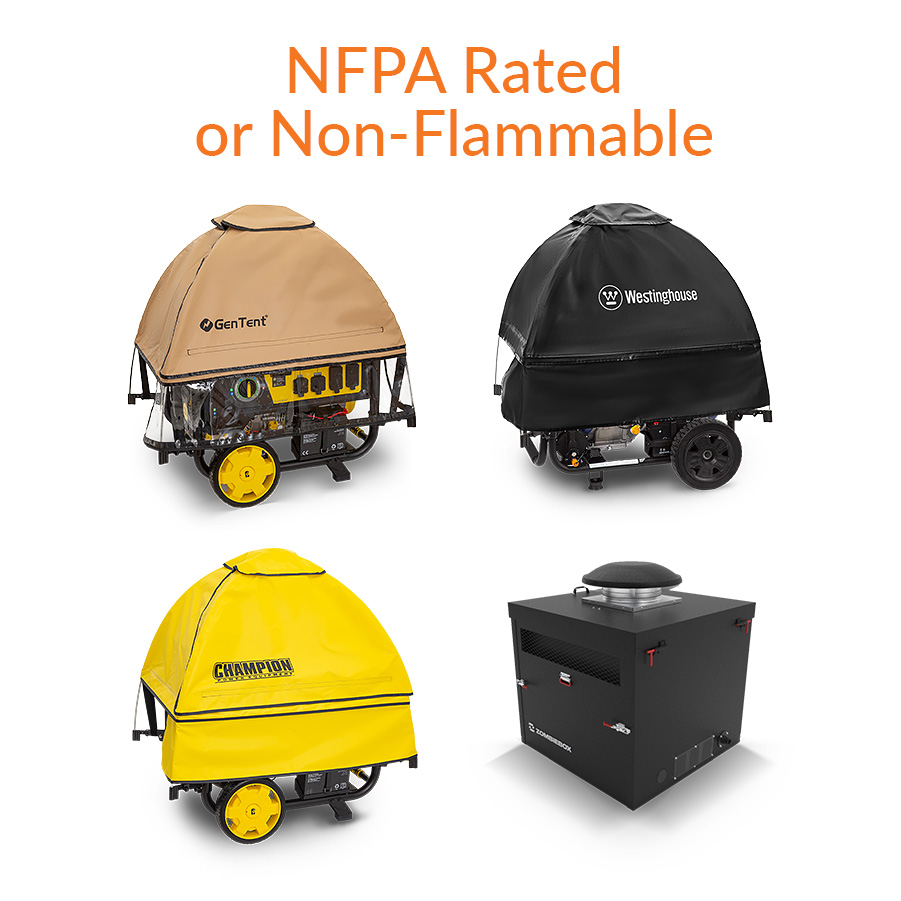
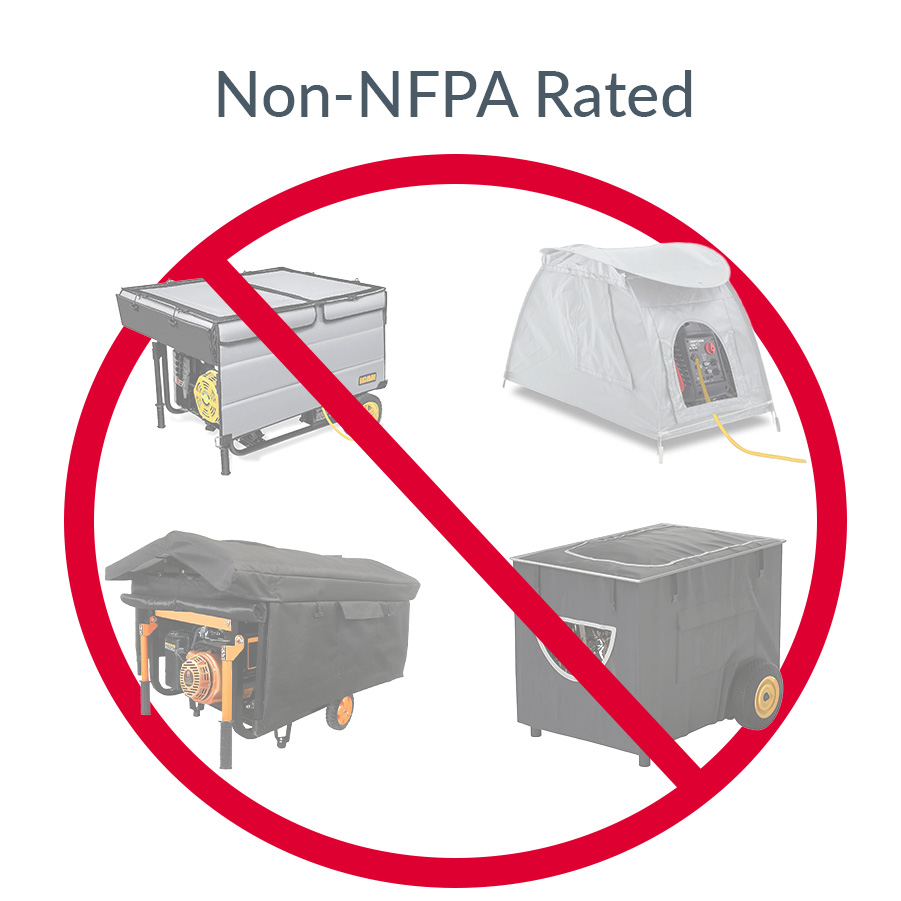
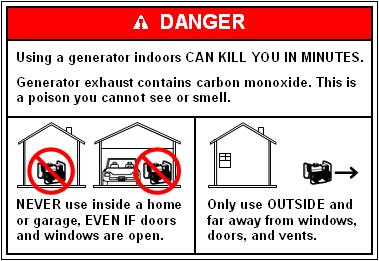
Do NOT run your generator indoors.
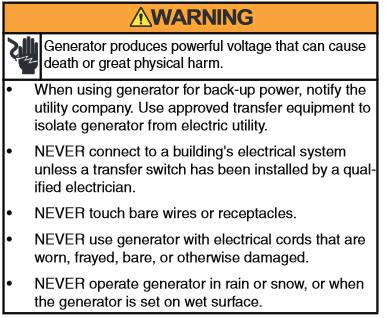
Do NOT run your generator in rain, snow, or on a wet surface.
In a large market study conducted in June 2023, 80% of respondents reported Emergency Home Backup Power being their primary reason for owning a portable generator. Even though safety organizations including the US Consumer Product Safety Commission (CPSC) recommends using portable generators no less than 20 feet from any building or structure, 69% of survey respondents said they would feel safe running their generator* under a deck, under an eave or overhang of their house, in their garage with the door open, or in their basement with the windows open, for example.
* - with a working CO sensor
During wet weather power outages, portable generator owners are left with conflicting guidance on how to operate their portable generator safely, so it's easy to see why they often end up using their generators in unsafe locations, exposing themselves to fire hazards and other risks.
Fire injury and property damage frequently occur as a consequence, as exemplified by the complete loss of this residence during an ice storm in New Hampshire, with the improper placement of a portable generator under the deck.
Lack of guidance on generator usage during inclement weather has led certain individuals to devise their makeshift enclosures or adapt preexisting items for safeguarding their generators. Regrettably, many of these makeshift solutions tend to be costly, constructed from flammable materials susceptible to ignition in the vicinity of heated exhaust emissions, or possess designs that obstruct proper ventilation, and risk overheating the generator.
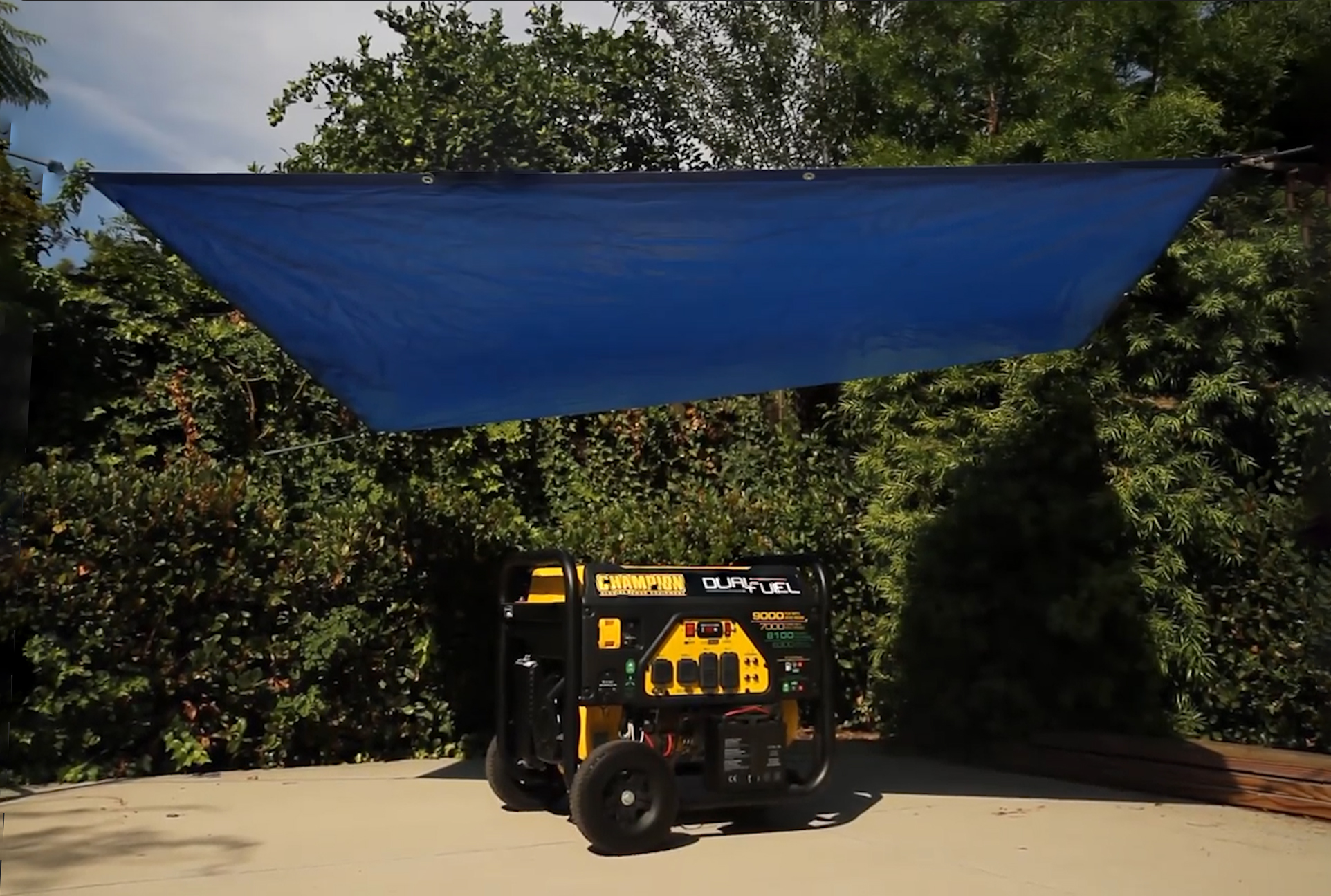
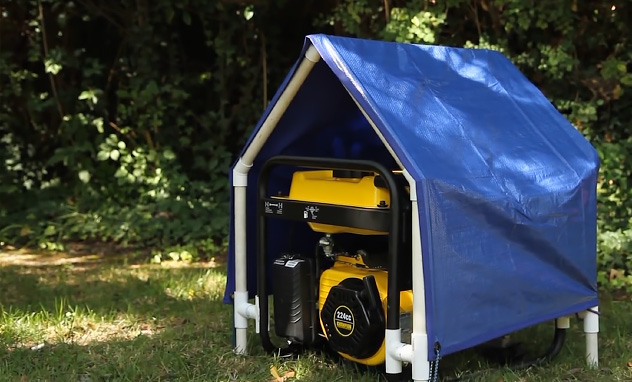
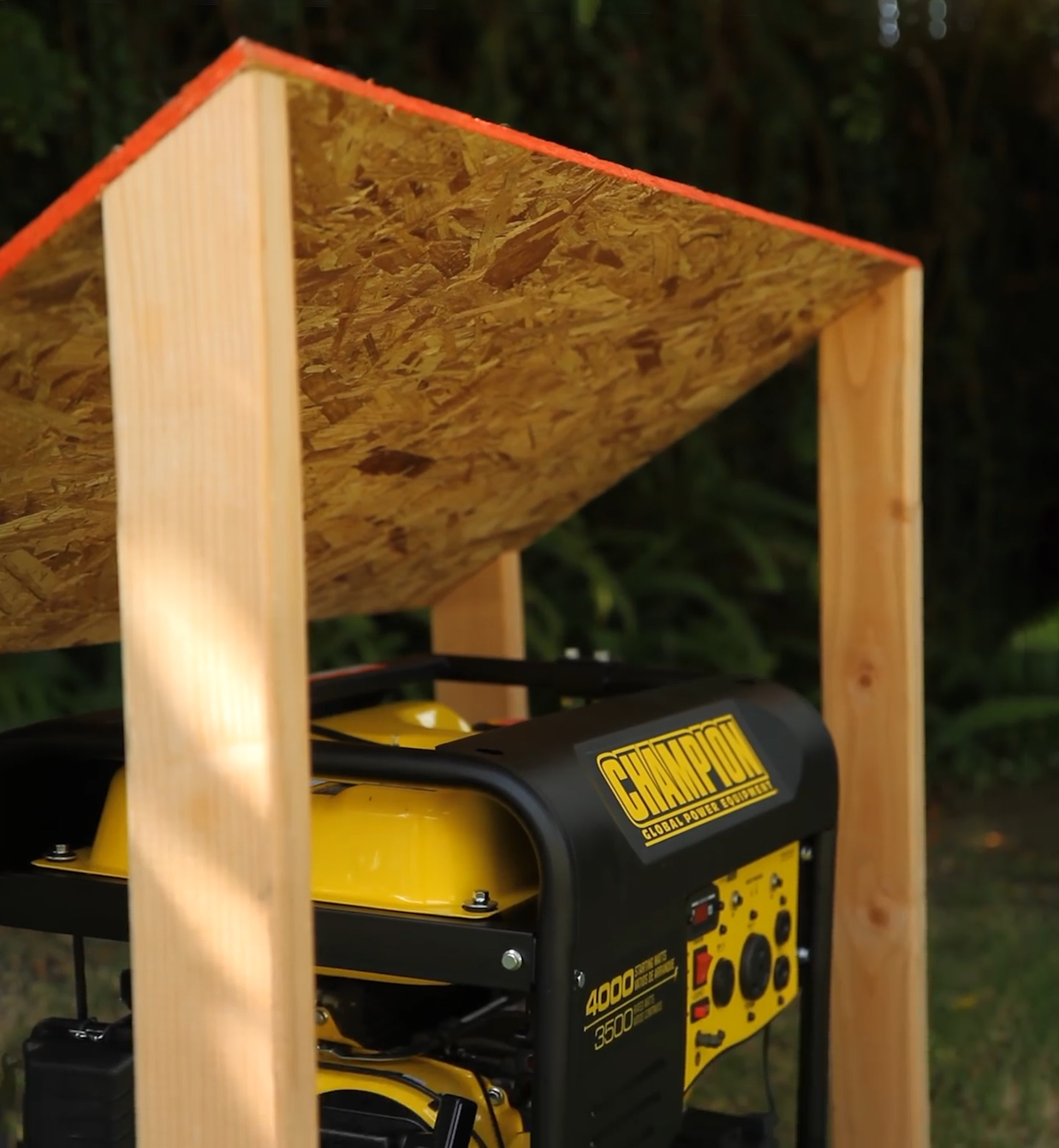
Generator Tents: the Wet Weather Solution
GenTent Safety Canopies defined the “Generator Tent” product category over a decade ago, which has proven to address many of the hazards posed from portable generator use during inclement weather, including addressing the behaviors and decisions that portable generator owners often make during wet weather.
The Portable Generator Manufacturers' Association (PGMA) promotes the Take it Outside campaign, which encourages outdoor generator use.
People are used to associating tents with the outdoors, so naturally, a tented generator belongs outdoors!
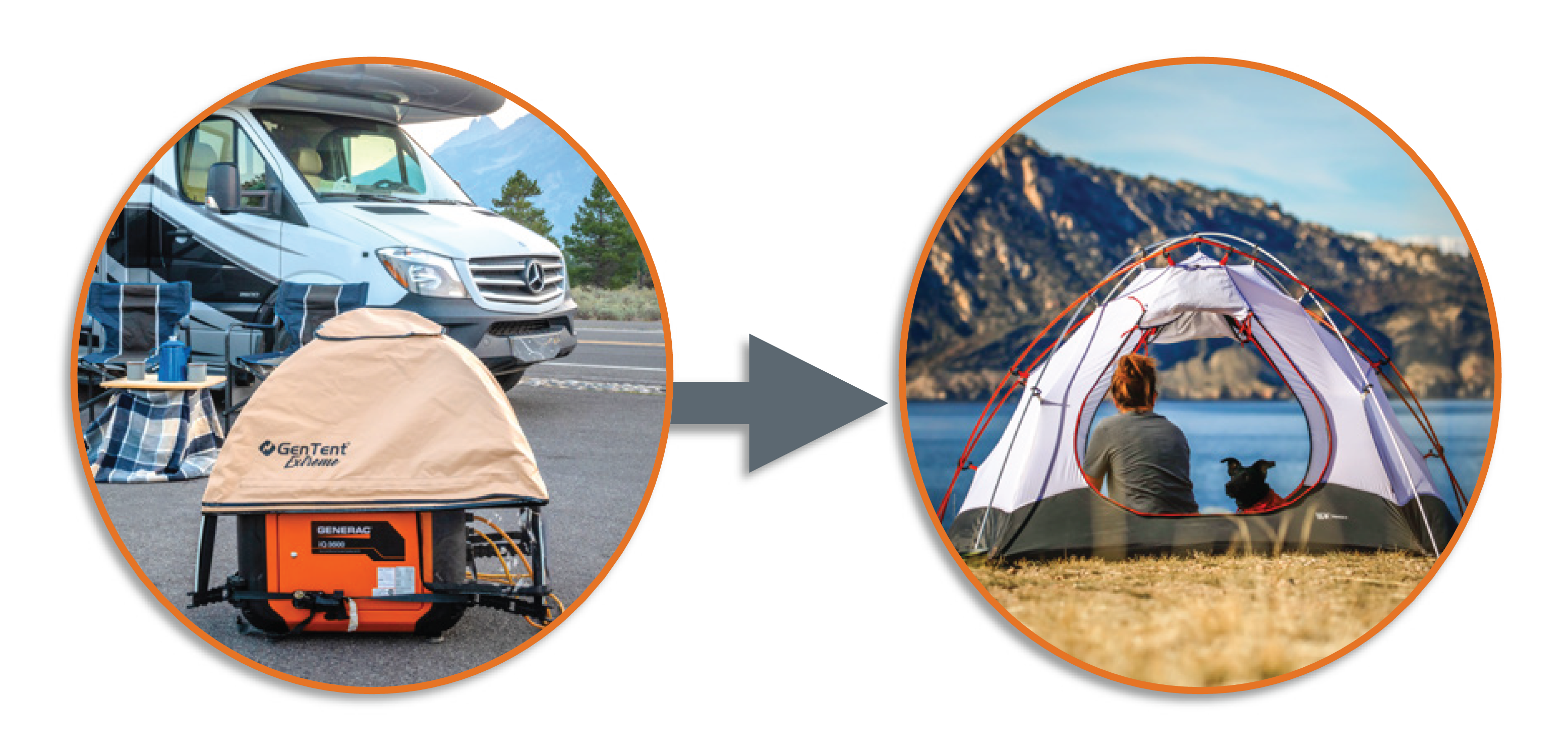
The CPSC has recently added reference to use of NFPA Rated Generator Tents in their official safety recommendations for safe portable generator use in wet weather.
GenTent: The NFPA-rated Market Leader
GenTent's NFPA-rated generator tents are made with flame retardant materials. Engineered to withstand rain, snow and strong winds, GenTent provides excellent ventilation to prevent overheating and helps maintain access to all generator panels for ease of use and quick refueling.
With GenTent, you can ensure safe, uninterrupted power when you need it most. Browse our selection to find the right fit for your generator.

